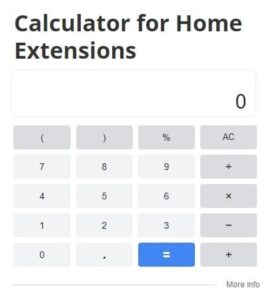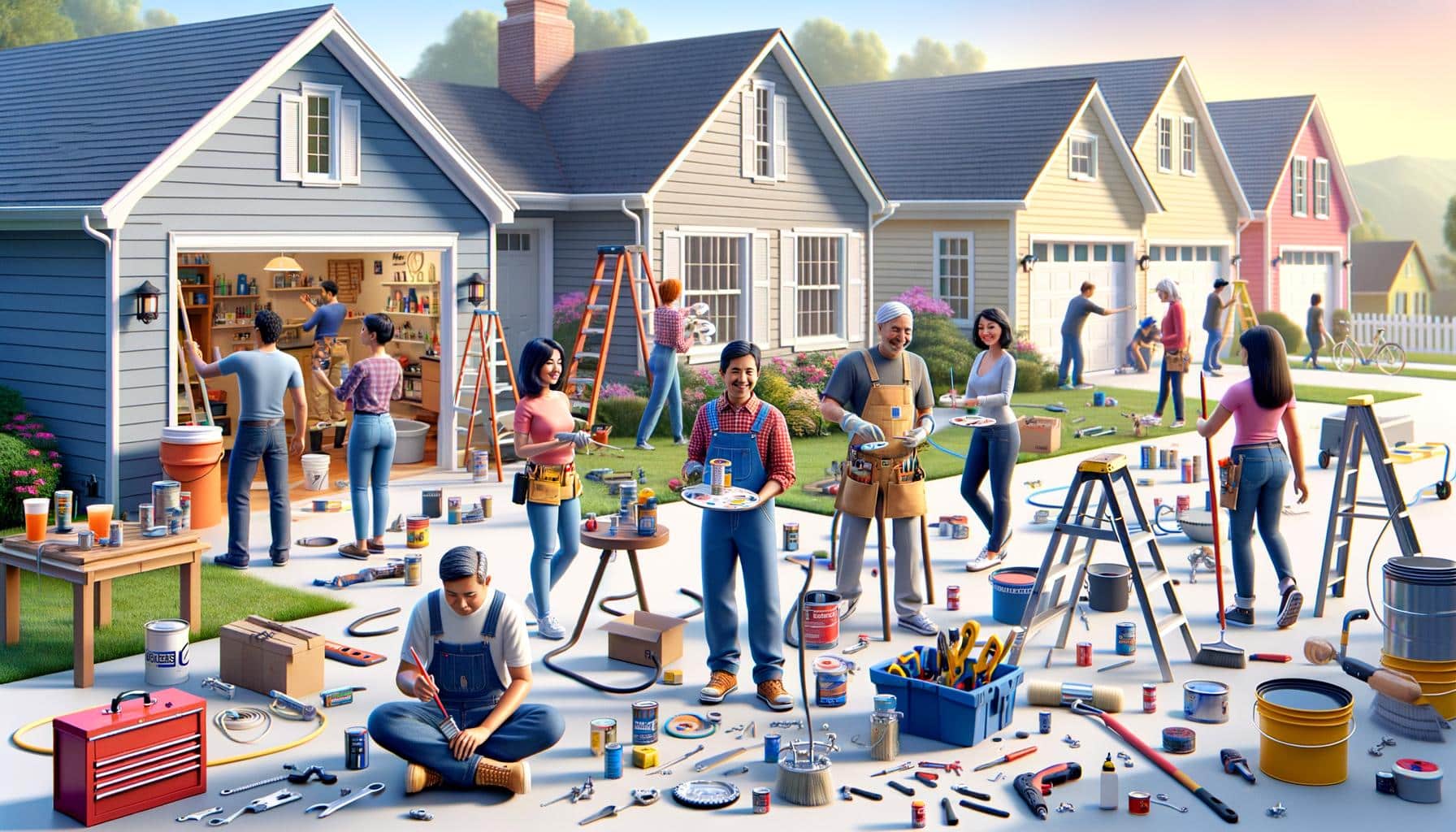
At Home Owners Association, we understand the importance of clear communication when it comes to property upkeep.
Knowing the right home maintenance synonyms and related terms can make a significant difference in how you approach your household projects.
This blog post will explore various ways to describe home maintenance activities, from common synonyms to specialized vocabulary used in the industry.
Common Synonyms for Home Maintenance
Home maintenance is an essential aspect of property ownership. Understanding its various synonyms can help you communicate more effectively about your home care needs. We’ve compiled a list of common terms often used interchangeably with home maintenance to broaden your vocabulary and enhance your understanding of property upkeep.
House Upkeep: The Everyday Approach
House upkeep is perhaps the most straightforward synonym for home maintenance. It encompasses all the regular tasks that keep your home in good condition. This term often refers to daily or weekly chores such as cleaning, tidying, and minor repairs. For example, changing air filters, cleaning gutters, or touching up paint all fall under house upkeep.
Residential Care: Beyond Basic Maintenance
Residential care takes home maintenance a step further. This term implies a more comprehensive approach to property management, including not just repairs and cleaning, but also improvements and upgrades. It might involve tasks like landscaping, pest control, or even energy efficiency improvements.
Property Preservation: Long-Term Value Protection
Property preservation focuses on maintaining and protecting the long-term value of your home. This term is often used in real estate and property management contexts. It includes activities that prevent deterioration and maintain the structural integrity of the building. Another strategy for asset preservation is creating asset protection trusts, which can be used as a financial protection tool.
Dwelling Conservation: Eco-Friendly Approach
Dwelling conservation is a term that emphasizes the environmental aspects of home maintenance. It focuses on preserving your home while minimizing its environmental impact. This approach often includes using sustainable materials, implementing energy-efficient solutions, and reducing waste. These tips on how to build a sustainable house can guide you in reducing waste, increasing durable reliability, and improving energy and water efficiency.
Household Repairs: Fixing What’s Broken
Household repairs refer to the specific tasks of fixing or replacing damaged or malfunctioning elements of your home. This term is often used when discussing immediate issues that need attention, such as a leaky faucet, a broken window, or a malfunctioning appliance. While it’s a subset of overall home maintenance, household repairs often require immediate attention to prevent further damage or inconvenience.
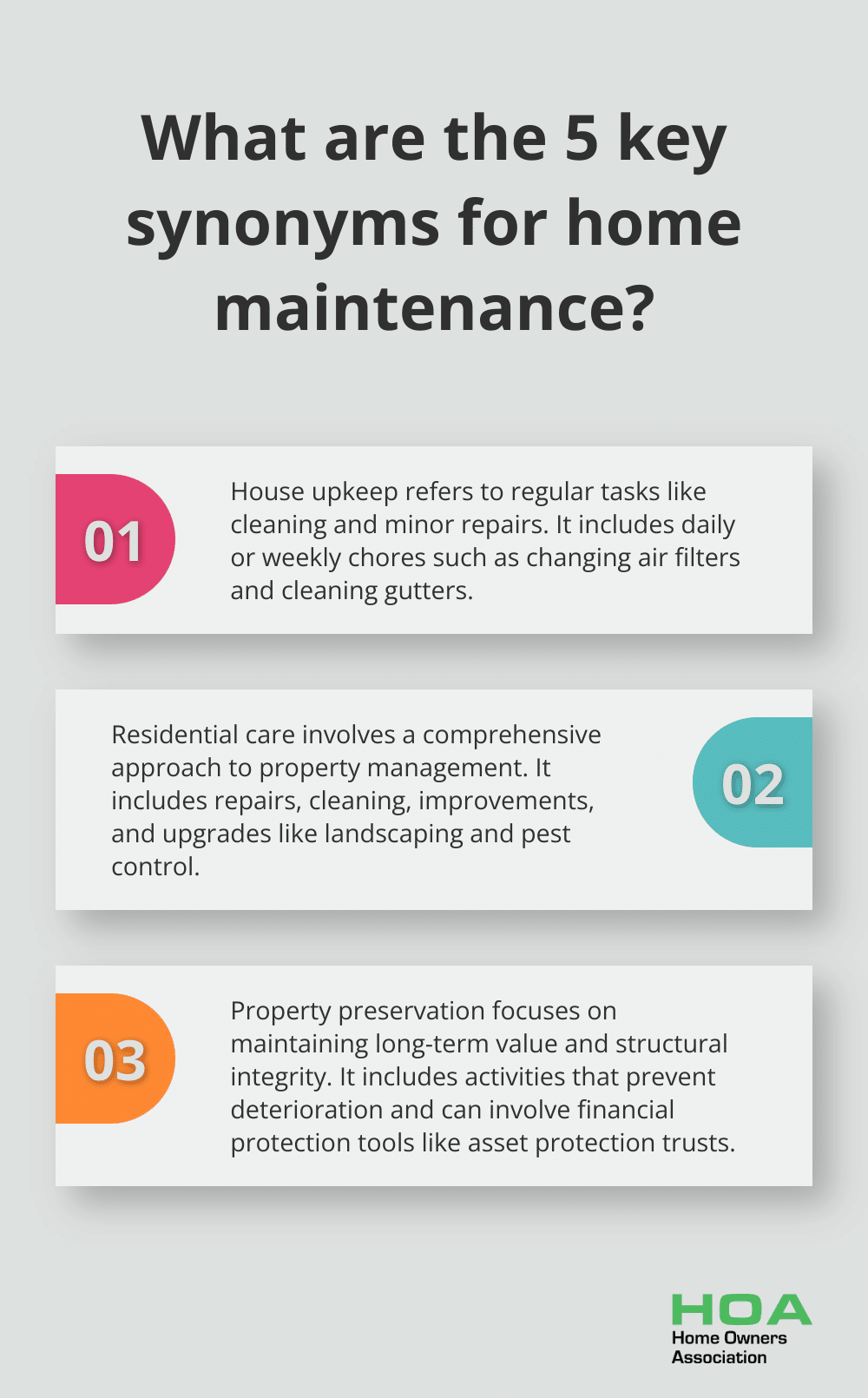
Understanding these synonyms allows you to better articulate your needs and expectations when working with contractors or discussing home care with fellow homeowners. Each term (house upkeep, residential care, property preservation, dwelling conservation, and household repairs) represents a different facet of home maintenance, providing a comprehensive view of what it takes to keep a property in top condition. As we move forward, let’s explore related terms in home improvement that complement these maintenance activities.
Related Terms in Home Improvement
Home improvement extends beyond routine maintenance, encompassing activities that transform living spaces. These projects can significantly increase property value and enhance quality of life for homeowners across Australia.
Renovation: Updating Your Home
Renovation updates or modernizes an existing structure. This can range from installing new kitchen cabinets to replacing outdated electrical systems. When you plan a renovation, consider both aesthetic and functional improvements. For example, upgrading to energy-efficient appliances can reduce utility bills while modernizing your home’s appearance.
Remodeling: Restructuring Your Space
Remodeling involves more extensive changes to a home’s structure or layout. This might include removing walls to create an open-plan living area or adding an extension to increase square footage. Before you start a remodeling project, consult with a licensed architect or builder to ensure your plans are feasible and comply with local building codes.
Refurbishment: Refreshing Your Interior
Refurbishment focuses on improving the appearance and functionality of a space without major structural changes. This can include painting, replacing flooring, or updating fixtures. Refurbishment projects (often less expensive than full renovations) can still dramatically improve your home’s aesthetics and comfort.
Restoration: Preserving Your Home’s Heritage
For older homes, restoration returns a property to its original condition or a specific historical period. This is particularly relevant in Australia, where many heritage-listed homes require specialized care. The National Trust of Australia provides guidelines for heritage restoration, emphasizing the use of period-appropriate materials and techniques. If you consider restoring a heritage property, work with contractors experienced in historical preservation.
Home Upgrades: Enhancing Functionality
Home upgrades improve specific aspects of your property without extensive renovations. These can include installing smart home technology, upgrading insulation, or adding solar panels. Such upgrades (often focused on energy efficiency or modern conveniences) can significantly improve your home’s functionality and value.
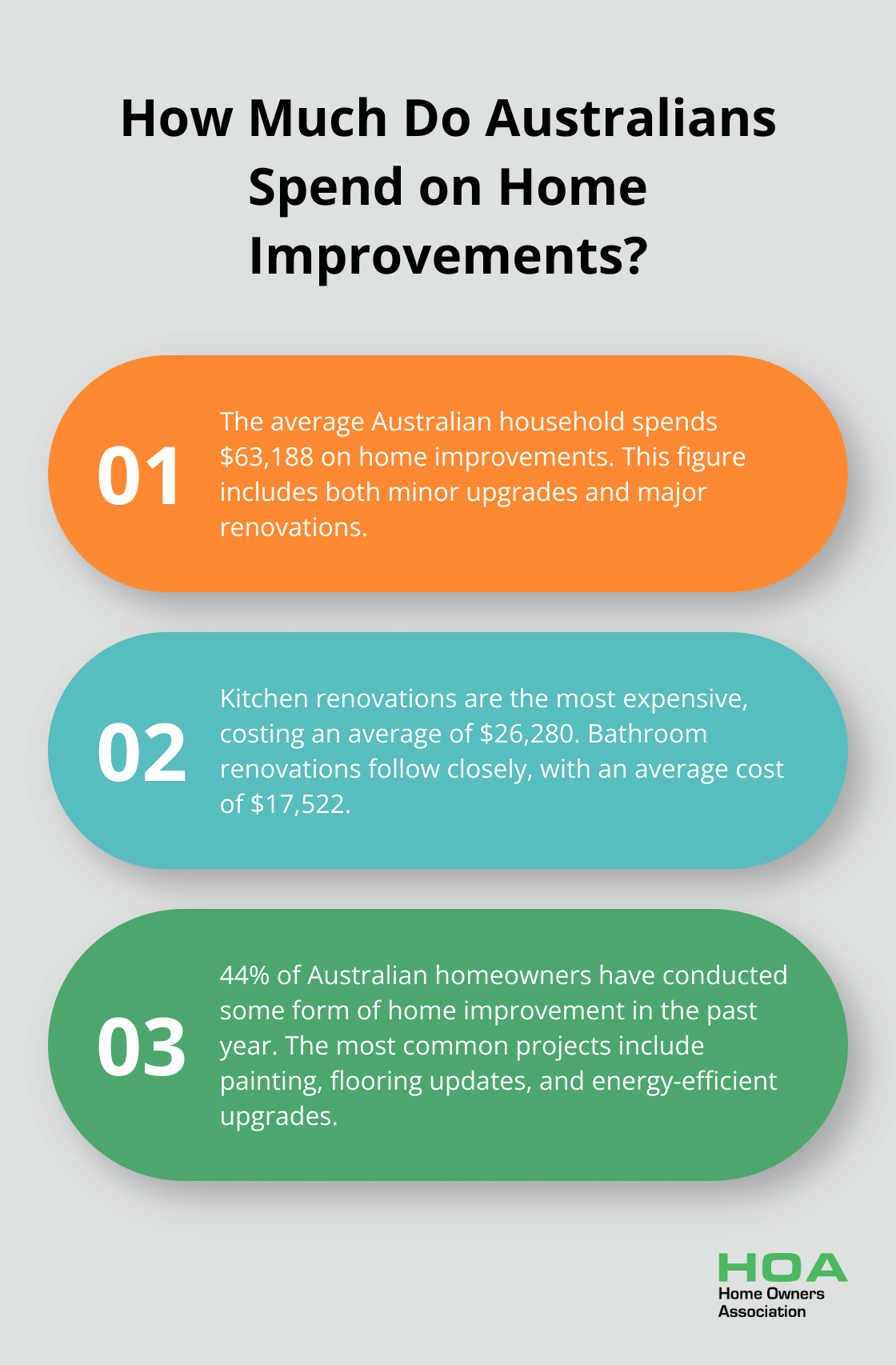
Understanding these related terms helps you communicate your vision effectively and make informed decisions throughout your home improvement journey. As we explore the world of home maintenance and improvement, let’s now turn our attention to specialized vocabulary that professionals use in this field.
Mastering Specialized Home Maintenance Terms
The Art of Weatherproofing
Weatherproofing protects your home from the elements. In Australia’s diverse climate, this is particularly important. Proper insulation forms the foundation of an energy-efficient home. Heating and cooling can account for 20% to 50% of energy used in Australian homes. This involves sealing gaps around windows and doors, applying weather stripping, and ensuring proper insulation. For coastal properties, use corrosion-resistant materials to combat salt air.
Winterization Techniques
Winterization prepares your home for colder months. While not all parts of Australia experience harsh winters, proper winterization can save you money and prevent damage. This includes insulating pipes to prevent freezing, checking heating systems, and sealing any drafts. In areas prone to bushfires, winterization also involves clearing gutters and creating a defensible space around your property.
The Power of Deep Cleaning
Deep cleaning goes beyond regular housekeeping. It’s a thorough cleaning of your entire home, including often-neglected areas. This process can improve indoor air quality and extend the life of your furnishings. Try to schedule a professional deep clean at least once a year.
Preventive Maintenance Strategies
Preventive maintenance addresses potential issues before they become problems. This proactive approach can save homeowners thousands in the long run. Estimating annual home maintenance costs helps homeowners manage their property effectively. The 1% rule, expense categorization, and cost-saving strategies can be useful in planning for maintenance expenses.
Understanding Structural Repairs
Structural repairs address issues with your home’s foundation, walls, or roof. These are often the most critical and costly repairs a homeowner may face. Early detection is key. Look out for signs like cracks in walls, uneven floors, or doors that won’t close properly. If you notice any of these, consult with a structural engineer immediately.
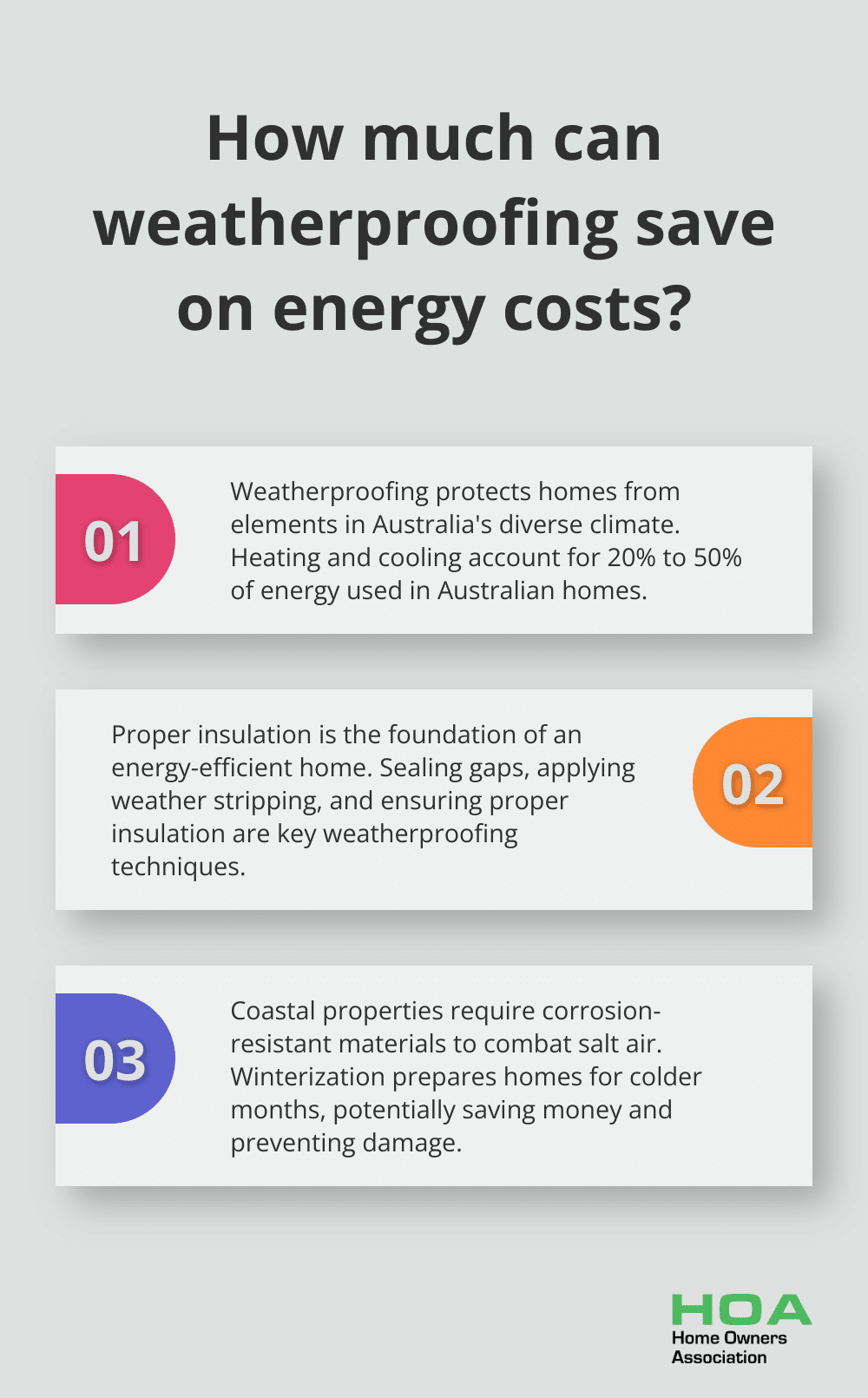
Final Thoughts
Understanding home maintenance synonyms empowers homeowners to communicate effectively about property care. This knowledge leads to more accurate estimates, better-quality work, and improved overall results in home improvement projects. The use of precise language ensures clarity, prevents misunderstandings, and potentially reduces costs in the long run.
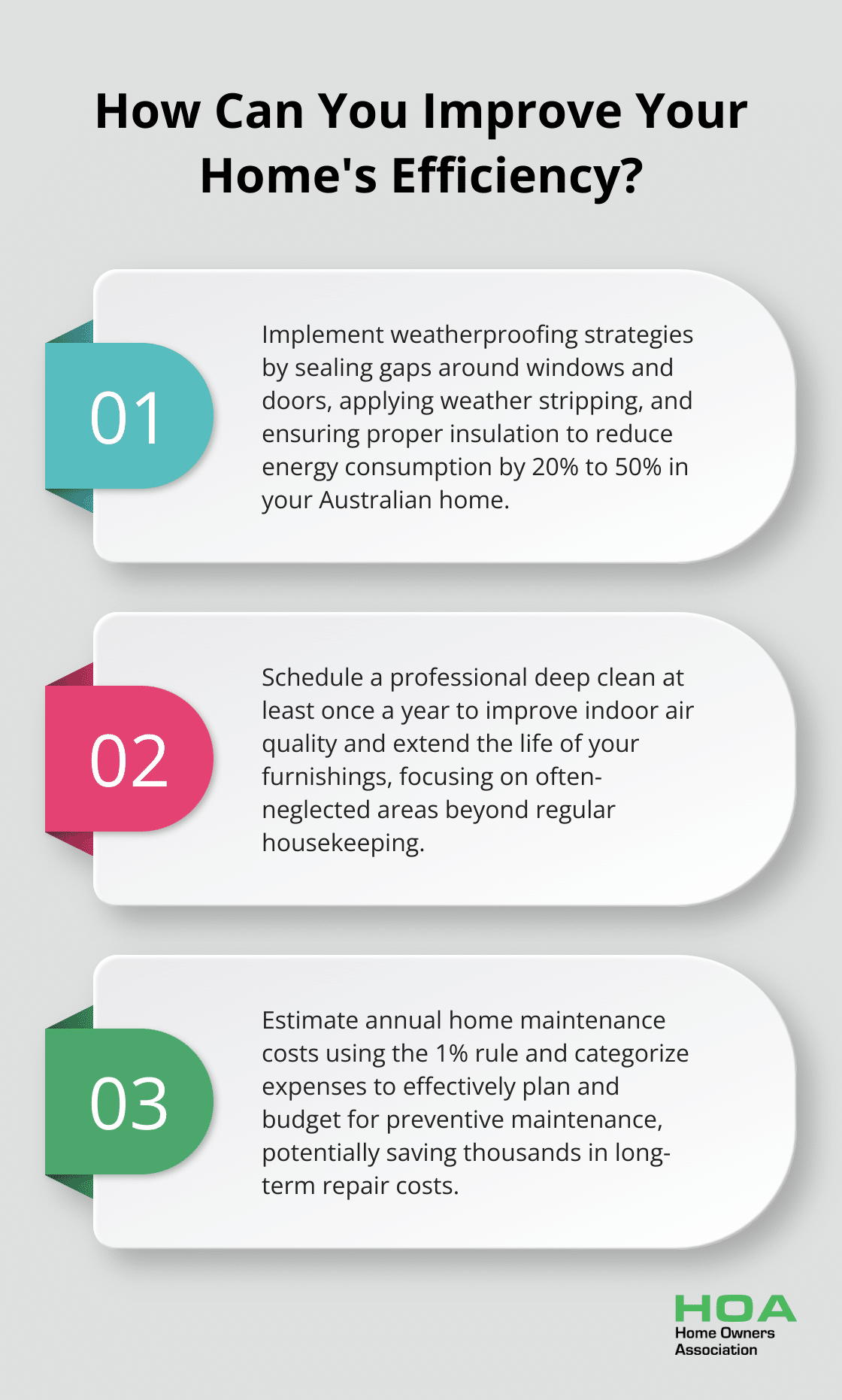
Home Owners Association encourages you to incorporate these terms into your conversations about home improvement. You’ll demonstrate a thorough understanding of your property’s needs and manage your home more effectively. The more specific you are about your home maintenance requirements, the more likely you are to achieve the desired outcomes.
For your next home improvement project, consider leveraging the expertise and resources available through Home Owners Association. Our team supports Melbourne homeowners with trade pricing, expert advice, and personalized guidance (ensuring your projects meet high-quality standards). Your knowledge of home maintenance synonyms, combined with our comprehensive support, will prepare you to tackle any property care challenge.





